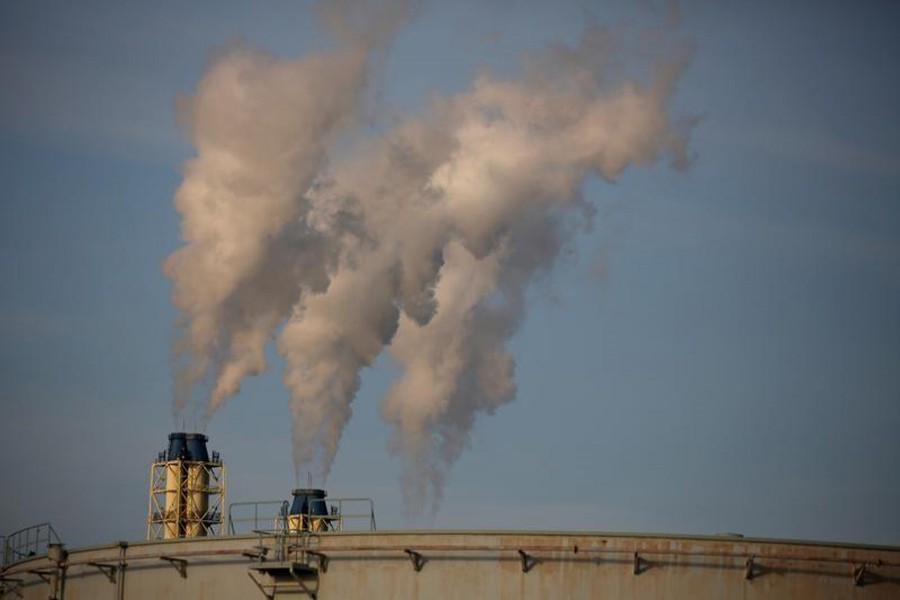Steam is emitted from a oil refinery in Sodegaura, Japan. — Reuters
SINGAPORE, Sept 5 (Reuters): US oil prices rose on Tuesday as the gradual restart of refineries in the
Gulf of Mexico that were shut by Hurricane Harvey raised demand for crude, their main feedstock.
The return of many US refineries also ended a spike in gasoline prices, as initial fears of a serious supply crunch faded.
US West Texas Intermediate (WTI) crude futures Clc1 were at $47.55 barrel at 0656 GMT, up 26 cents, or 0.55 per cent, from their last settlement.
Gasoline futures RBc1, by contrast, fell 4 per cent from their last close, to $1.68 per gallon, down from $2.17 a gallon on Aug. 31 and back to levels last seen before Hurricane Harvey hit the US Gulf coast and its large refining industry.
"Gasoline fell as refineries in Texas began to reopen," said William O'Loughlin, investment analyst at Rivkin Securities.
Texas on Monday edged towards recovery from the devastation of Hurricane Harvey as shipping channels, oil pipelines and refineries restarted some operations.
The Department of Energy said that eight US oil refineries with a total of 2.1 million bpd, or 11.4 per cent of total US refining capacity, were still shut as of Monday afternoon.
Harvey hit the Texan coast late on Aug. 25 and at its peak knocked out almost a quarter of the entire US refining capacity.
In international markets, Brent crude futures LCOc1 dipped 3.0 cents to $52.31 a barrel as traders were cautious on oil - seen as a riskier asset - and instead preferred gold XAU=, an investor safe-haven, following North Korea's most powerful nuclear test to date.
Another report from Tokyo adds: Japan is proposing its oil refineries increase the amount of residual fuel oil processed at the plants in a third round of directives to streamline the nation's refining sector.
Japan's refiners want the overall nationwide average volume of residual fuel oil processed to 7.5 per cent of the volume of crude oil that they refine in the year starting in April 2021, according to documents released by the Ministry of Economy, Trade and Industry (METI) on Aug. 29 for public review.
The ratio is currently about 7.0 per cent, a senior METI official told Reuters on Tuesday.
Japan, the world's fourth-largest oil user, has cut back its refining capacity since 2015 as falling domestic fuel demand created idled capacity. The government wants to increase efficiency in the industry to help them compete against regional refiners.
The latest directive will push the refiners to increase their so-called upgrading capacity, which uses fuel oil, the residue oil left over after crude oil is initially processed, to manufacture fuels including gasoline and diesel.
"The refiners would be facing difficulty unless they can beat off cheap oil product imports," the METI official said. "From the energy security point of view, it is necessary to increase the industry's global competitiveness."
There are six refining companies subject to the targets, including JXTG Nippon Oil & Energy, Idemitsu Kosan and Showa Shell Sekiyu, the official said.
Refiners could meet the new directive by building new residue cracking units. However, with costs of hundreds of millions of dollars, the companies are reluctant to make investments in the units as domestic demand has dropped by about 30 per cent since 1999 to 2015.


